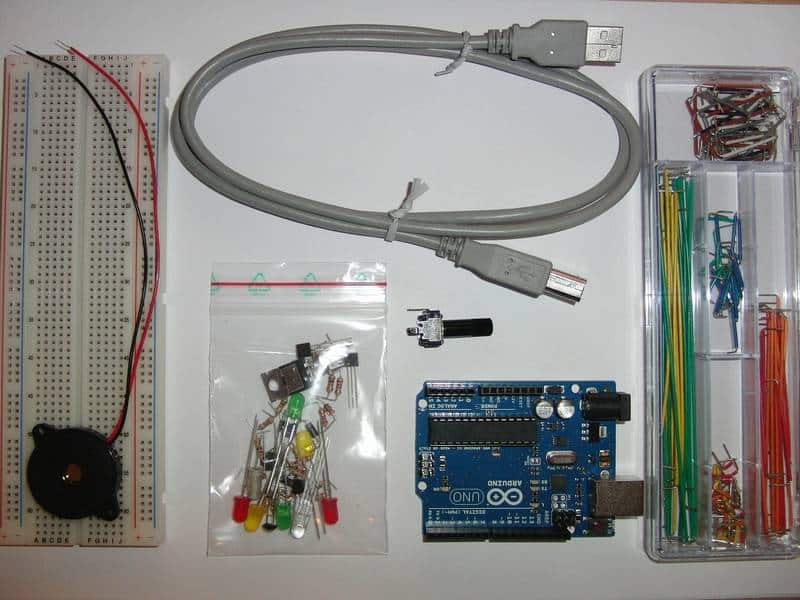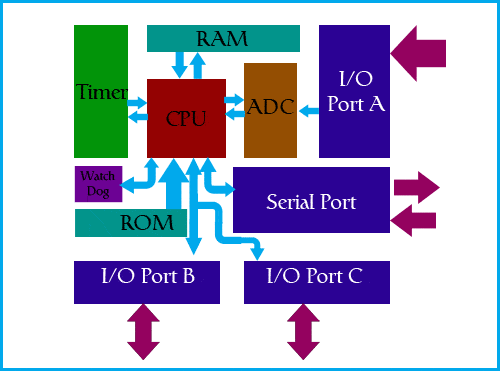How cool would it be if you could build an amplifier? Or something bigger? This, and much more, is certainly within the realm of possibility if you achieve the level of expert in electronics.

Learning electronics, and especially for a beginner, is not hard, but it does require time. You can also have some fun along the way as you learn. And the best way to learn electronics is by following this 4-step guide
1. Know Your Basics
As a beginner, start by familiarizing yourself with electronics basics. This covers the main parameters used in electronics, namely current, measured in Amps, voltage measured in Volts, and resistance, measured in ohms. You should also know the basic components of electronic circuits, namely capacitors, diodes, inductors, transistors, and integrated circuits. Find out what each component does and how it works.
Wrap up your knowledge of the basics by learning how to connect the various components. Schematic diagrams will lead you on how to go about these connections. There are plenty of schematic diagrams online and in electronics books.
2. Start Building Circuits
Now that you have a basic understanding of schematic diagrams and what it takes to build circuits, the best way to improve your understanding is to actually start building circuits. You can start from the most basic of circuits, and work your way to the more advanced ones.
Circuit building kits that come as a package with the board, components, and instructions are very beginner-friendly. The instructions are pretty easy to follow. With time, you can do away with instructions and build your circuits by intuition using stripboards and breadboards. Continue reading more materials as you experiment with building various circuits.
3. Learn About Microcontrollers
Microcontrollers are one of the most useful electronics tools. A firm grasp of the basics of electronics is vital if you are to understand microcontroller basics, both the hardware and the programming. Arduino is easily among the best ways to get started on learning about microcontrollers.

Once you have an understanding of the theory, get down to the practicals with a basic microcontroller development board. The boards are relatively inexpensive and come with many interfaces and an on-board programmer and debugger.
Build the application circuit and write the programming for various devices and functions such as sensors. Over time, and with some practice, especially with programming, you can move to more advanced interfaces and do more with your microcontroller.
4. Work On a Project
Up until now, you have mostly been practicing what others have done to help you reinforce your theoretical understanding and polish up your practical skills. Test just how much you have learnt and what you can do by taking on a project.
What project are you passionate about and would like to give it a try? Have your pick. You can try just about anything from a home security system or a humidity sensor for your air conditioning system to displaying custom animations on an LCD.
There will certainly be challenges as you work on your project. Working to overcome these challenges should provide an excellent learning opportunity for you. Again, be sure not to beat yourself up too much, or give up if you don’t get it right the first time.
Next Level
For your project in the step above, you worked with ready circuit boards, now, how about moving to the next level and designing your own? Being able to design and build circuit boards is the holy grail for electronics enthusiasts. With this skill, you can design and build the most advanced gadgets and systems such as robots.
Classroom Learning or At-Home Learning
There are electronics programs in formal education institutions such as colleges and universities. You will go through a well-structured program, starting with the basic courses, and by the end of your program, you will be an expert at electronics and microcontroller programming.
There are reputable academies accepting GI bill benefits to cover the cost of learning if you are a veteran looking to enroll in their boot camps, including one on electronics and programming. Learning electronics will open a host of opportunities for you which should ease your transition back to civilian life.
On the other hand, you can also self-teach electronics from home. There are plenty of resources online, from e-books and comprehensive guides to video tutorials on YouTube and other platforms. If you can put in the time and effort, you can self-teach all the way to the level of expert without ever having to go through a formal training session. May hobbyists have done it, and you too can do it.
Bottom Line
Contrary to what you may have heard, learning electronics and programming is not too hard. With the right learning materials and resources, and the right mindset and attitude, you can go from beginner to expert.





